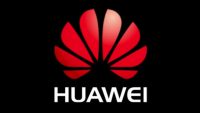Huawei’s New Flagship Smartphone Contains No U.S. Parts
December 3, 2019
In the wake of the Trump administration’s ban on the sale of U.S. technology to China, smartphone manufacturer Huawei turned to other sources. UBS and Fomalhaut tore apart the Chinese company’s Mate 30, which debuted in September, and determined it did not contact a single U.S. component. U.S. companies Intel and Qualcomm, among others, were prevented from shipping chips and other smartphone technology. Secretary of Commerce Wilbur Ross began granting export licenses for some goods to be shipped to China last month.
The Wall Street Journal says that Ross has reported that he has received “nearly 300 license applications.” In the meantime, however, “Huawei has made significant strides in shedding its dependence on parts from U.S. companies.”

In addition to chips from Intel and Qualcomm, Huawei previously relied on products from North Carolina-based Qorvo, Massachusetts-based Skyworks Solutions, California-based Broadcom and Texas-based Cirrus Logic. Huawei, said Fomalhaut, “has reduced its reliance on U.S. suppliers or eliminated U.S. chips in phones launched since May, including the company’s Y9 Prime and Mate smartphones.” Its conclusions were confirmed by “similar inspections by iFixit and Tech Insights.”
The Mate 30, an Apple iPhone 11 rival that touts “a curved display and wide-angle cameras,” features chips from Dutch company NXP Semiconductors, and replaced Qorvo or Skyworks amplifiers with those from “HiSilicon, Huawei’s in-house design firm.”
“When Huawei came out with this high-end phone — and this is its flagship — with no U.S. content, that made a pretty big statement,” said Susquehanna International Group analyst Christopher Rolland. Citigroup analyst Atif Malik recently reported a “growing China domestic substitution risk” for U.S. companies, notably in lower-priced phones.
Nonetheless, a Huawei spokesperson stated the company had a “clear preference to continue to integrate and buy components from U.S. supply partners … [but] if that proves impossible because of the decisions of the U.S. government, we will have no choice but to find alternative supply from non-U.S. sources.”
Huawei earlier said it anticipated the U.S.’s action and “began stockpiling spare parts” as well as “started working on its own replacement parts.” Huawei reported it bought $11 billion of U.S. technology last year. Broadcom, Qorvo, and Skyworks all “warned of earnings hits because of the partial U.S. export ban.”
Huawei top cybersecurity official John Suffolk also stated that the company is now producing about 5,000 5G base stations a month, built without any U.S. components. That figure is expected to increase to about 125,000 per month next year.

No Comments Yet
You can be the first to comment!
Sorry, comments for this entry are closed at this time.